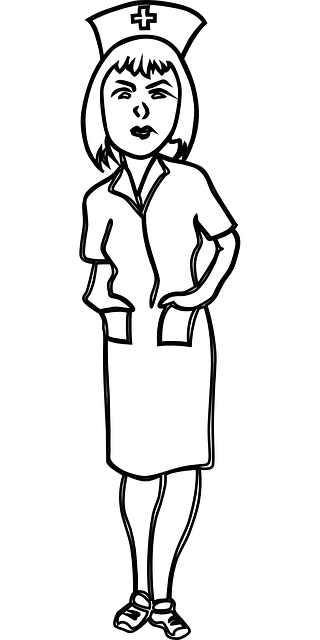
Consideration of the senior care levels is important for families to consider when looking at options for their loved ones' needs. It is important to take the time to fully understand the impact of different care levels on a person's everyday life in order to find the perfect fit.
Choosing the right type of elderly care for a family member can be difficult, especially when there are so many choices available in today's market. Keep these things in mind when you are choosing the right type of elderly care for a family member:
The Cost of Senior Care Levels
While there is no hard and fast rule, costs typically increase by several hundred dollars per month at each new level of care for assisted living facilities. This is due in large part to the additional assistance residents receive with each level of senior care.
The level of care that a resident requires depends on their personal and health care needs. This is determined through a professional needs assessment. This noninvasive evaluation will help you determine the type of care required by your loved ones.

In general, the lower levels of care cater to seniors who require minimal assistance in their daily activities (ADLs) or health-related requirements. This includes assistance for dressing, bathing, and toileting. But it does not require complex medical monitoring as is common in Level 3 assisted care.
Eating, shaving and taking medicine are among the services that seniors most often need. Many seniors can feed them selves, but others require assistance in cutting up food or run a greater risk of choking.
Another area in which the level of attention required can be very different is grooming. Some seniors can brush their teeth, but others need help with getting their hair done or shaving.
Medication Needs
While some people can take their medications on their own without assistance, others may need help opening the pill bottles or giving injections. People with diabetes or a high blood pressure history may need to be reminded of their medication or monitored for their health.
It is important that elderly adults shower and bathe frequently to maintain good hygiene. The risk of shower-related accidents is a serious concern for senior citizens.

Memory Loss: Some seniors have signs of Alzheimer's or Dementia and require extra help with daily tasks to stay healthy and active. These residents will need caregivers that can give them reminders, verbal or physical cues and help manage their daily lives.
Skilled Nursing Care at Home
These communities offer the most intensive form of care for seniors. These facilities provide round-the-clock nursing care and rehabilitation to older residents after they leave a hospital, doctor's office or other medical facility.
Unlike independent living and assisted living, these residential settings tend to have a smaller population. This provides seniors with more privacy while allowing them to retain a strong sense independence.
FAQ
What impact will it have on the healthcare industry if there is no Medicare
Medicare is an entitlement program that offers financial assistance to low-income families and individuals who can't afford their premiums. This program covers more than 40 million Americans.
Millions of Americans would be without coverage if this program was not in place. Private insurers will stop offering policies for people with pre-existing conditions.
What are the three types of healthcare systems?
The first system is a more traditional system that gives patients little choice about who they see for treatment. They go to hospital A if they need an operation, but otherwise, they might as well not bother because there is nothing available at all.
The second system is a fee-for-service system where doctors earn money based on how many tests, operations, and drugs they perform. You'll pay twice the amount if you don't pay enough.
The third system is called a capitation. It pays doctors based upon how much they actually spend on healthcare, rather than the number of procedures they perform. This allows doctors to choose lower-cost treatments such as speaking therapies over surgical procedures.
What information should I have about immunizations
Immunization refers to the stimulation of an immune response to vaccines. The body creates antibodies (immunoglobulins), in response to the vaccine. These antibodies protect against infection.
How can we improve the quality of our health care system
We can improve health care by ensuring that everyone is provided high-quality medical care, no matter where they are located or what their insurance status.
So that children don't get preventable diseases, like rubella, measles and mumps (MMR), we need to ensure that they all receive the required vaccinations.
We must keep working towards reducing the costs of healthcare and ensuring that it remains easily accessible for all.
Statistics
- For instance, Chinese hospital charges tend toward 50% for drugs, another major percentage for equipment, and a small percentage for healthcare professional fees. (en.wikipedia.org)
- Over the first twenty-five years of this transformation, government contributions to healthcare expenditures have dropped from 36% to 15%, with the burden of managing this decrease falling largely on patients. (en.wikipedia.org)
- The healthcare sector is one of the largest and most complex in the U.S. economy, accounting for 18% of gross domestic product (GDP) in 2020.1 (investopedia.com)
- About 14 percent of Americans have chronic kidney disease. (rasmussen.edu)
- Price Increases, Aging Push Sector To 20 Percent Of Economy". (en.wikipedia.org)
External Links
How To
How to Locate Home Care Facilities
Home care facilities assist people who require help at home. Home care facilities assist those with chronic illnesses, such as Alzheimer's, who can't move or are too elderly to leave their home. These facilities offer services such as personal hygiene, meal preparation and laundry, cleaning, medication reminders, transportation, and so on. These facilities often collaborate closely with social workers, rehabilitation specialists, and medical professionals.
Recommendations from family, friends, and local businesses or reviews online are the best ways to find a home-care service provider. Once you identify one or two providers, you can ask them about their qualifications and experience. Flexible hours are important so they can work around your schedule. Check to see if there is an emergency response available 24/7.
Consider asking your doctor for recommendations. If you don’t know where to begin, search online for “home health care” or “nursing home”. For example, you could use websites like Yelp, Angie's List, HealthGrades, or Nursing Home Compare.
For more information, you can also contact your local Area Agency on Aging or Visiting Nurse Service Association for further assistance. These organizations will keep a list of local agencies who specialize in home care.
Finding a good home care agency is important because many companies charge high patient fees. Some agencies may charge 100% of a patient’s income. It is best to avoid this problem by choosing an agency with a high rating from the Better Business Bureau. Get references from past clients.
Some states require home-care agencies to register with their state's Department of Social Services. To find out what registration requirements your agency must meet, check with your local government office.
There are several things to keep in mind when choosing a home care agency :
-
Do not pay upfront for any services if you are being asked.
-
Look for a reputable and well-established business.
-
For those who are paying out-of-pocket for insurance, make sure you have proof.
-
Verify that the state has granted the agency license.
-
Ask for a written agreement outlining all costs of hiring the agency.
-
Confirm that the agency provides follow-up visits after discharge.
-
Ask for a list or certifications.
-
Sign anything without first reading it.
-
Pay attention to the fine print.
-
You should verify that the agency you are dealing with is insured and bonded.
-
Ask how long the agency is in operation.
-
Verify that the State Department of Social Welfare has granted the agency a license.
-
Find out if there have been any complaints about the agency.
-
For information on home care agencies, contact your local government department.
-
You should ensure that the person answering the phone has the qualifications to answer your questions about homecare.
-
Contact your attorney or accountant to ensure you understand the tax implications of using home care.
-
Always get at least three bids for each home care agency you contact.
-
The lowest bid is the best but you should not settle for $30 an hour.
-
It is possible that you will need to visit more than one agency for home care each day.
-
Read everything before signing any contracts.